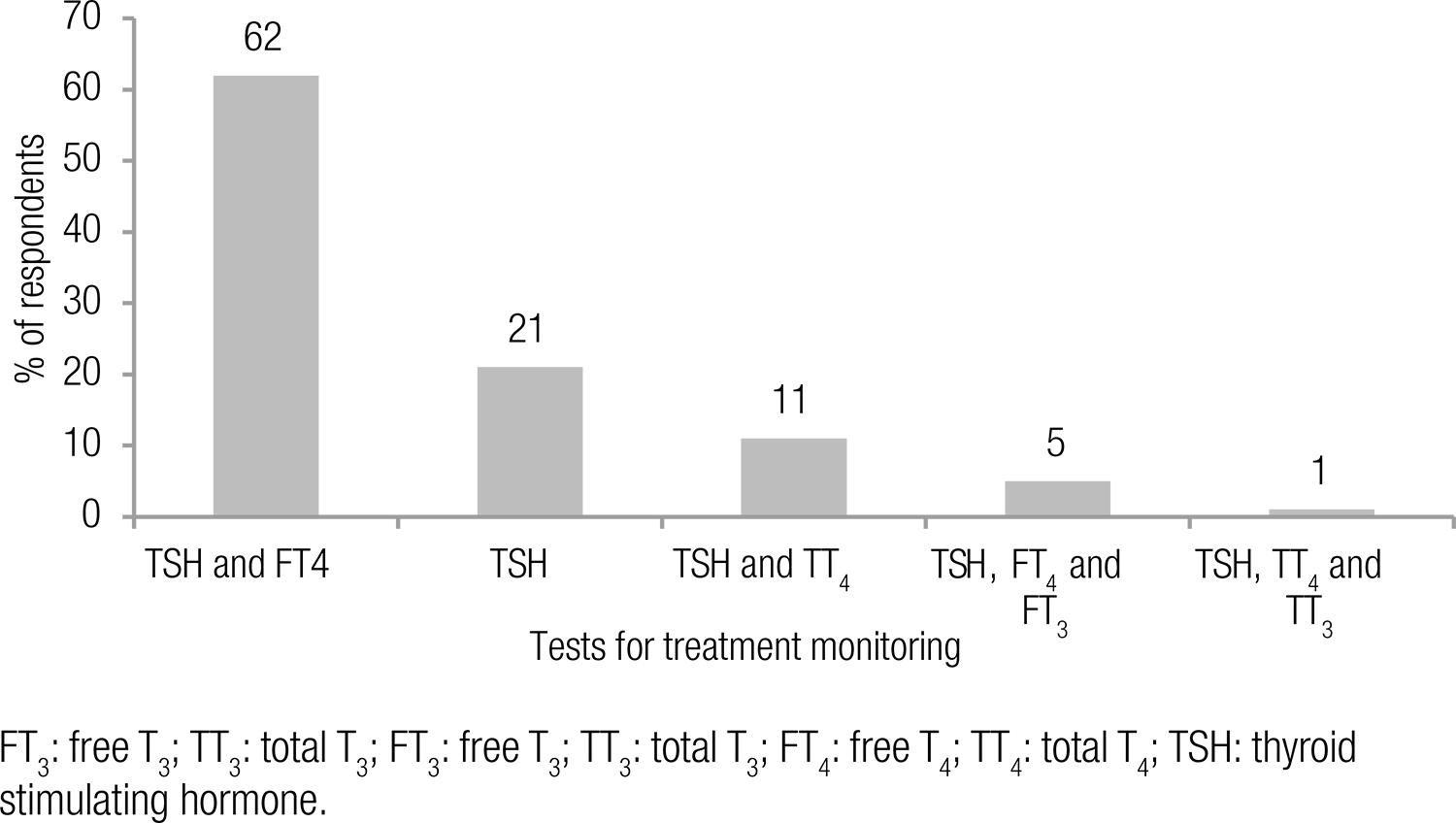Objectives
Evaluate the management of hypothyroidism in fertile-aged and pregnant women and compare these practices to the recommendations of the Brazilian Society of Endocrinology and Metabolism (SBEM) and the Latin American Thyroid Society, published in 2013.
Materials and methods
In the first trimester of 2014, SBEM made available to all members an electronic questionnaire based on clinical scenarios in the management of gestational hypothyroidism. The responses of 406 physicians, most of them endocrinologists, were analyzed.
Results
Eighty-one per cent of the endocrinologists screen all their pregnant patients for thyroid dysfunction, mostly during the pregestational period or after the first prenatal visit. Following screening, 82% of the respondents initiate treatment when TSH levels are > 2.5 mIU/L while 67% monitor their pregnant patients even if TSH was normal on first trimester screening. For hypothyroid women who are planning pregnancy, 96% of the clinicians are aware of the importance of adjusting the levothyroxine (LT4) dose as soon as pregnancy is confirmed. However, opinions diverge with respect to adjusting the LT4 dose before or after reassessing thyroid function. The most widely used tests for monitoring pregnant women in use of LT4 are TSH and free T4 (62%) or TSH alone (21%). Unanimously, the treatment goal is to achieve the target TSH level for each trimester of gestation.
Conclusion
The recommendations of the consensus statements are incorporated into the respondents’ clinical practice. It is noteworthy that the great majority of the clinicians favor universal screening.
Hypothyroidism; pregnant women; surveys



